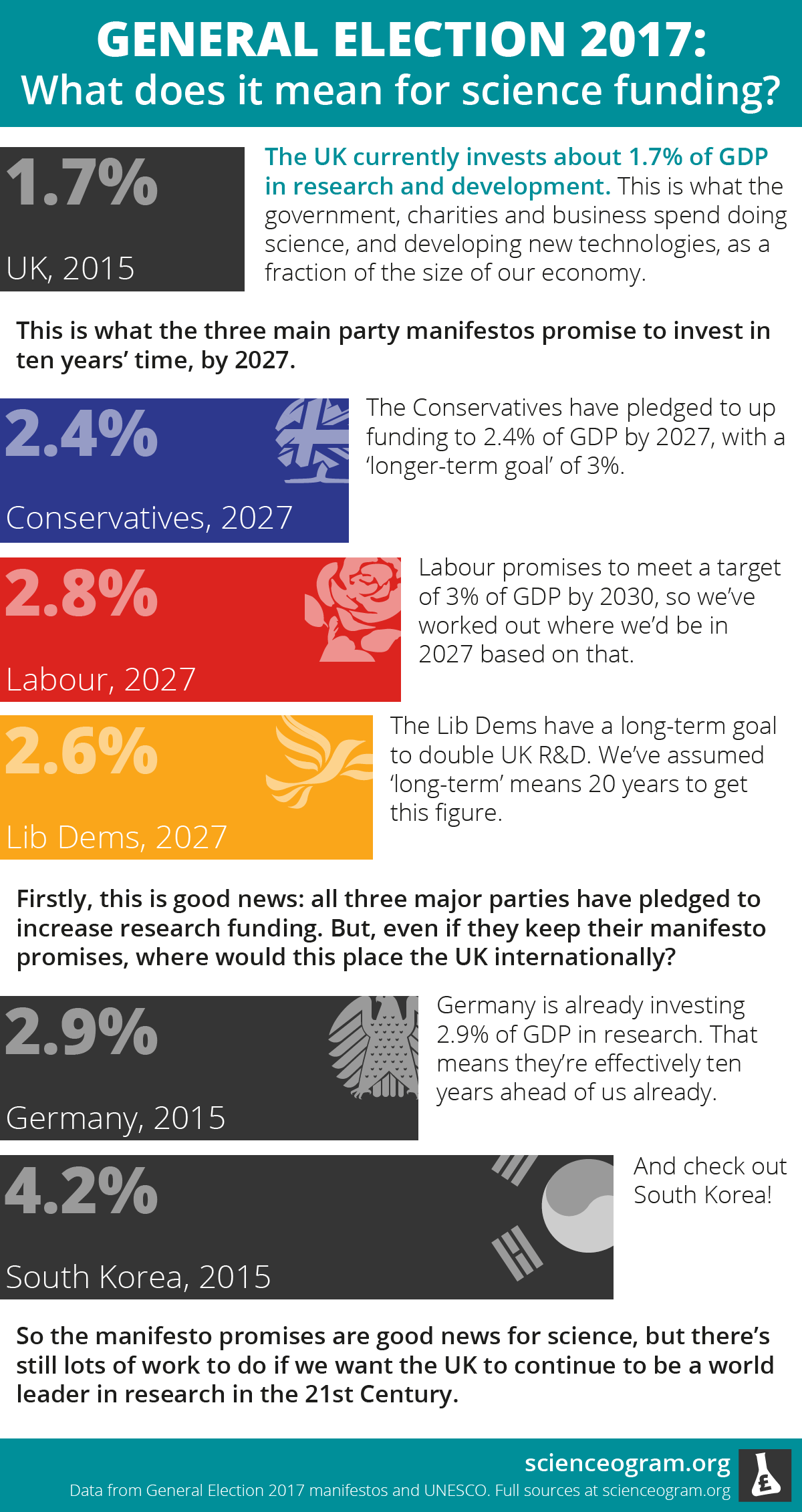Election 2017: Manifestos and science
What does the forthcoming General Election mean for science funding? We’ve dug through the manifestos to find out.
Here’s our infographic:

This is definitely good news for UK science: a cross-party commitment to increased investment in research is something that groups like CaSE, Science is Vital, the Royal Society, the CBI, and indeed Parliament’s own Science and Technology Committee, have been calling for for some time.
Of course, the main uncertainty here is always that manifesto pledges can fall by the wayside once a party is in government. There’s also uncertainty about the trajectory of that funding. If investment is hurriedly increased later on rather than gradually ramped up, money is likely to be spent less efficiently, and there’s also less of it when considered overall. We’ve assumed that all the parties would aim to increase funding as a fraction of GDP linearly but, given projections we made after the Autumn Statement last year which showed government science funding flatlining as a fraction of GDP, that may be a big assumption.
The final caveat is the classic Scienceogram refrain. Cancer kills a third of us, and yet we currently spend less than £3 per person per year on public-funded cancer research. Even the Lib Dems’ promise to double overall R&D funding would, if current funding proportions stay the same, only see government spending of around £6 per person per year. To us, that still doesn’t sound like enough for a disease which is responsible for 30% of deaths. Perhaps we should be assessing science funding based on the scale of the potential benefits, rather than as a fraction of GDP.
So, take heart from these commitments, but it may be premature to declare ‘Mission Accomplished’. We need to carry on championing UK science to make sure that these promises materialise, and to push for science funding to be set in line with the scale of the problems that science is trying to solve.
2 Comments
ohminus
Regarding this being “good news” and meaning that all parties promise to increase research funding – that’s actually misleading. They promise to increase the percentage of the GDP being invested. But with two of them supporting Brexit, which will likely cause a major hit to the GDP, the absolute values that will go into research will be quite different.
Add to that the varying buying power of the Pound and the effective investment into research will differ massively.
Edward Sherlock
One of the worst things that the Thatcher government did was to close down Warren Springs Laboratory. This was based in Stevenage and staffed by scientific civil servants. The organisation was a service to industries who were unable to conduct the research their businesses depended on.
A business would approach Warren Springs with a problem which needed an R and D program. If it was accepted a dedicated team would analyse the problem and work on its solution. A price would be agreed and a schedule of repayments over say 5 years set up.
Britain desperately needs such a service again.